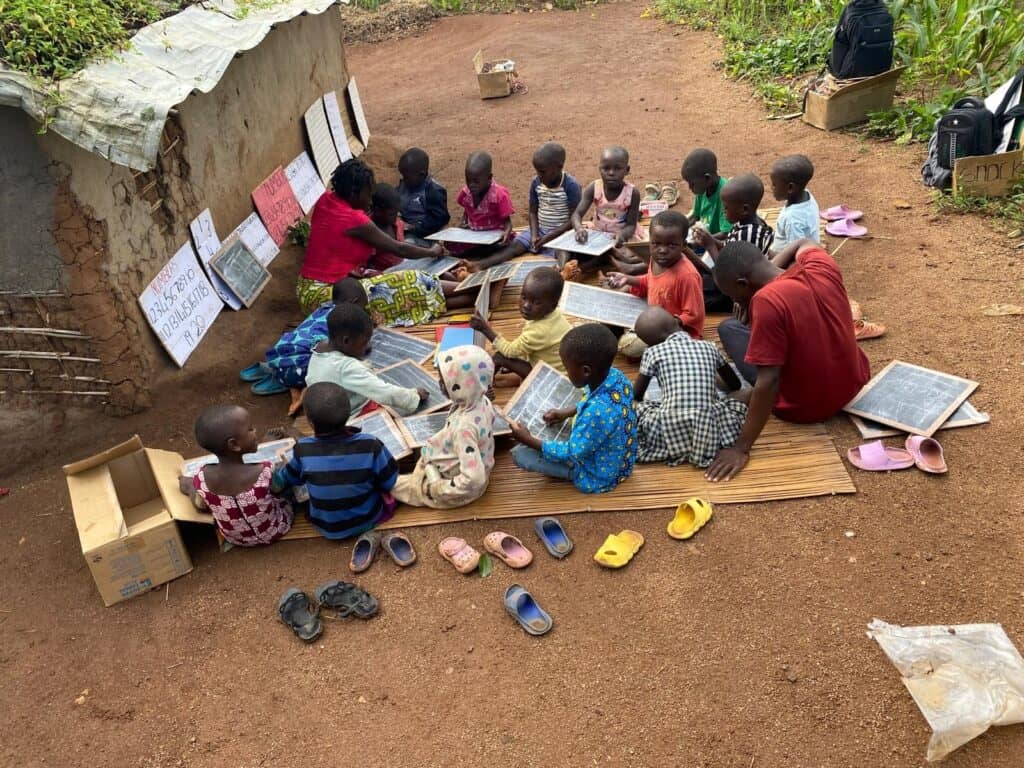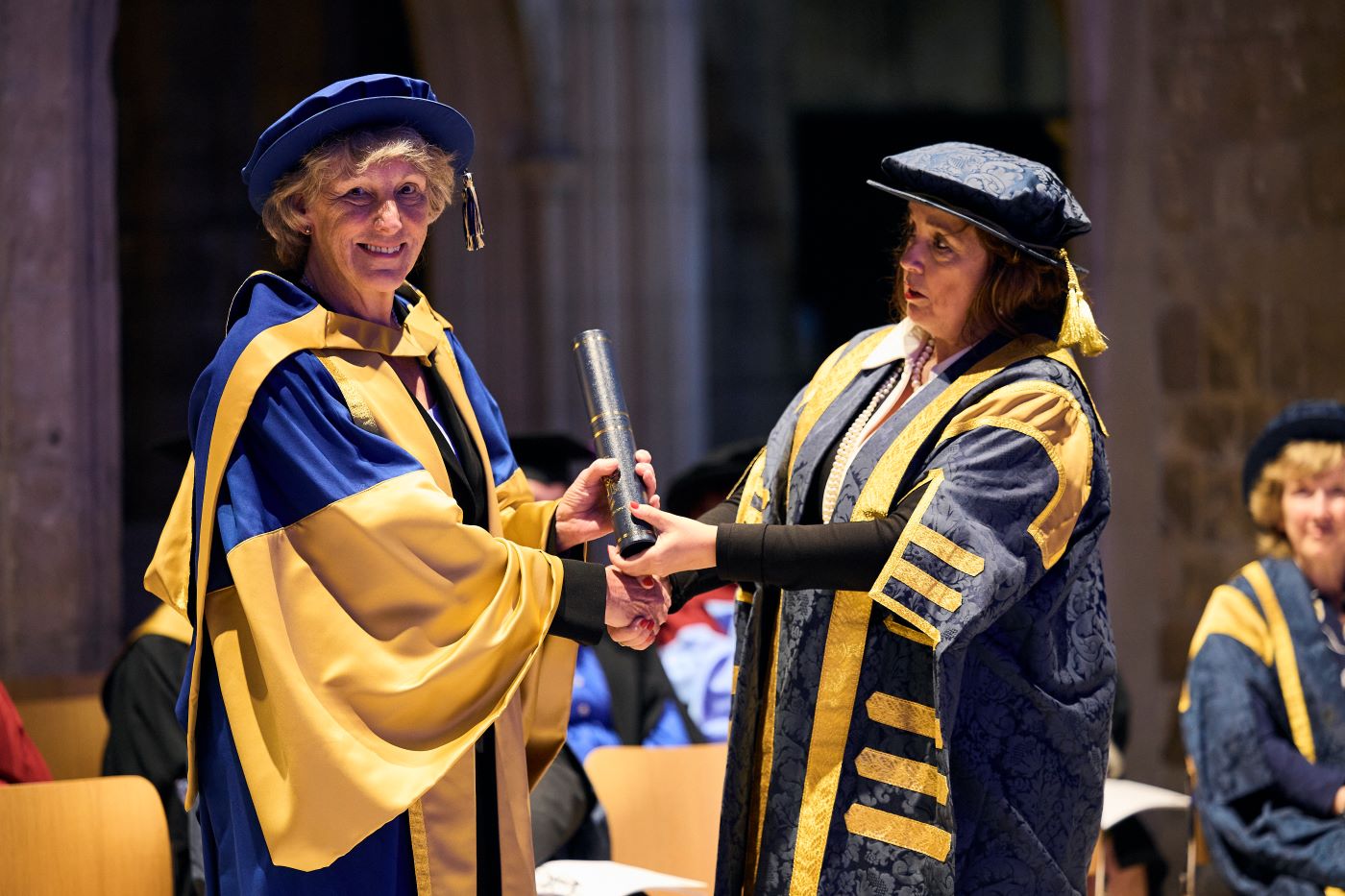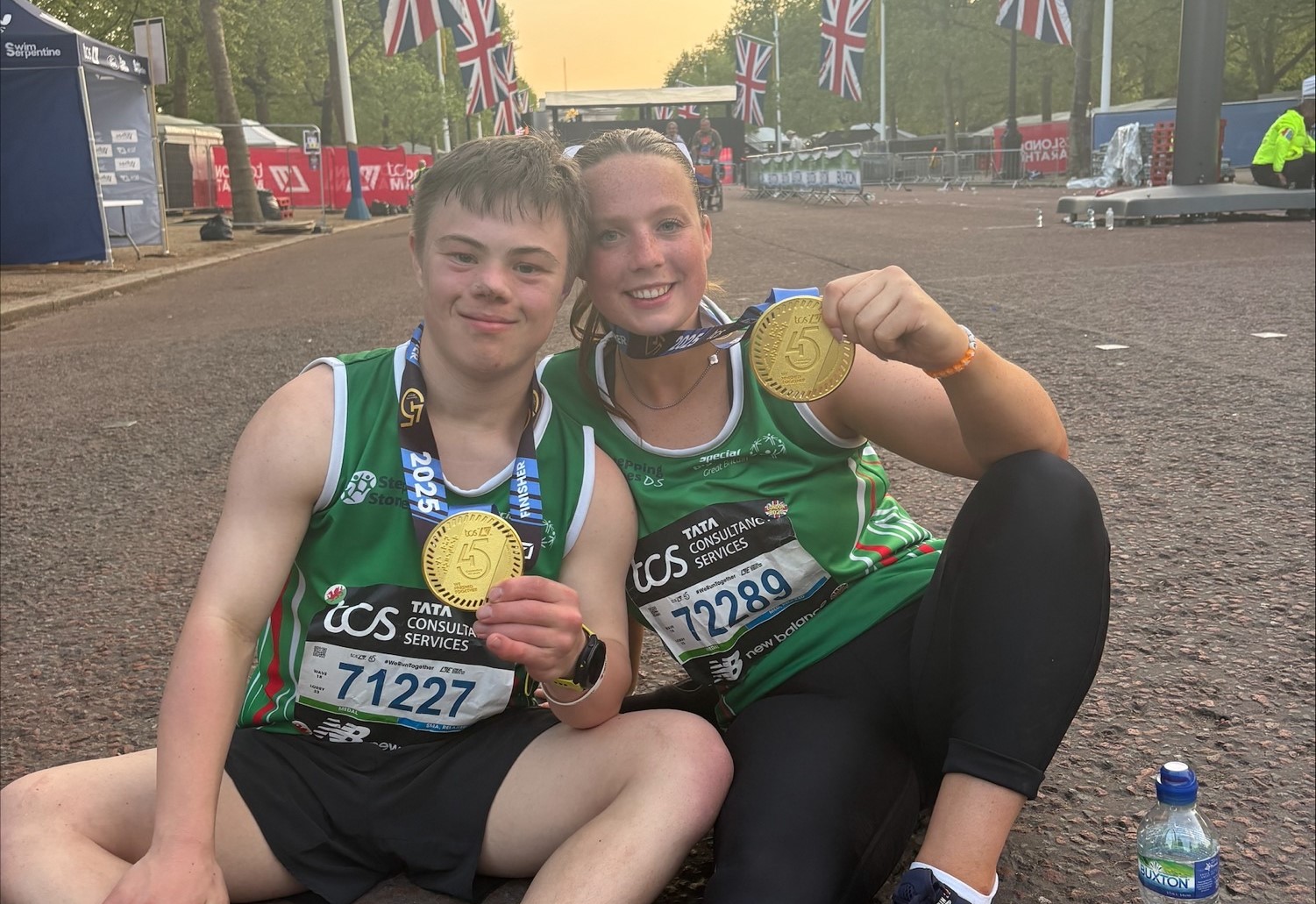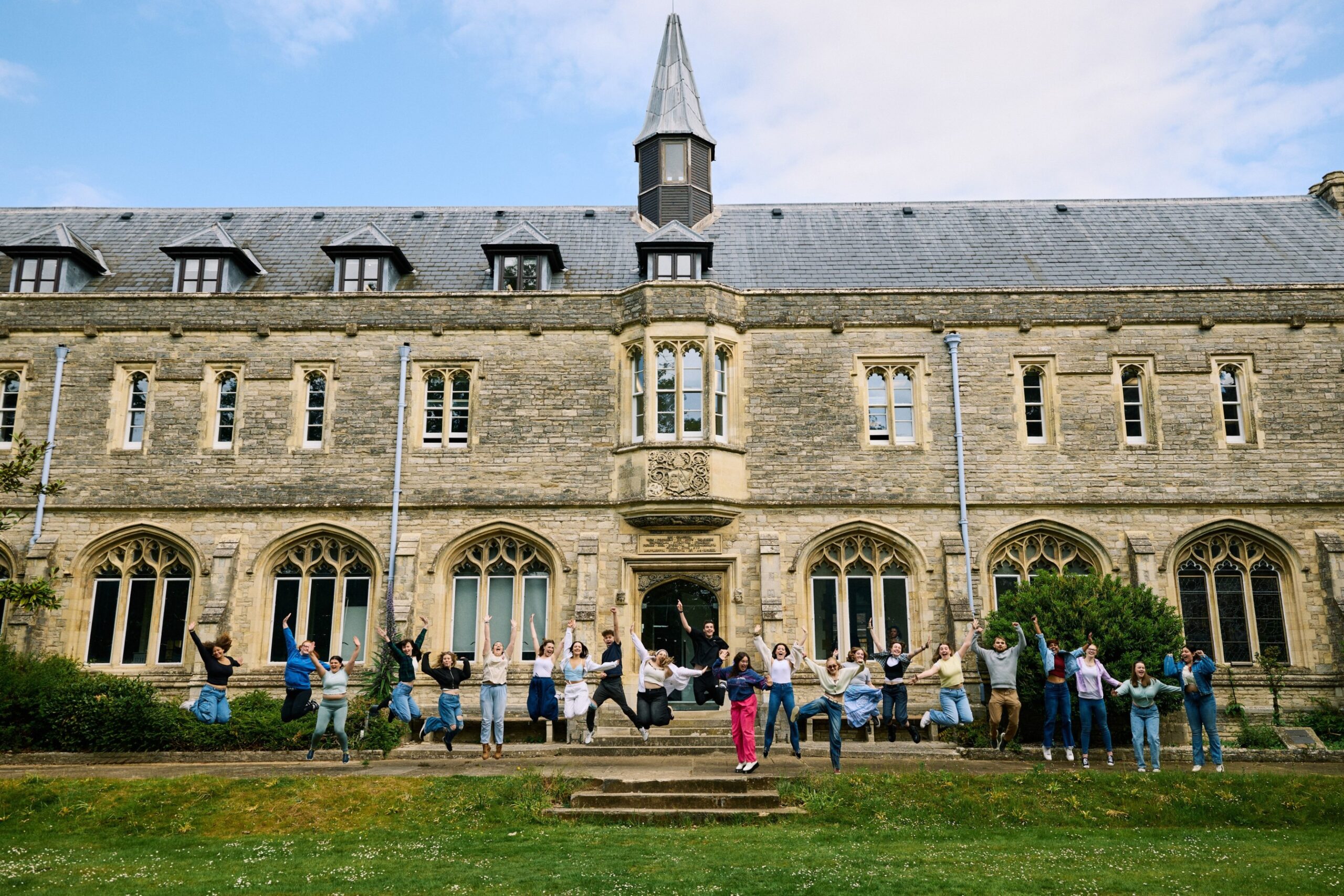Lecturer shares story of Uganda visit to Children on the Edge

A Chichester lecturer has shared her story after returning from a recent visit to see a ground-breaking education project in Uganda. Debra Laxton, Senior Lecturer in Early Childhood Education at the University of Chichester travelled to The Kyaka II refugee settlement in the Kyegegwa District of Uganda with Children on the Edge (COTE) Africa. The University of Chichester have been working with COTE for the last 18 months to develop and evaluate a play-based programme assessment framework that has the potential to reflect on early education provision and subsequently improve practice.
Debra described her arrival at the settlement: “Nothing had fully prepared me for the experience of driving into the settlement and walking into the vibrant communities that call this place home. On arrival in Kyaka II, any preconceived ideas I may have still held about refugee homes were completely dispelled. No commonly reported media refugee camp with rows of tents on barren ground. Instead, I found a lush, expansive settlement; the landscape was breathtakingly green, dotted with striking rock formations rising from hills with vast surrounding areas of maize and banana plants.
“The settlement stretches far and wide, a patchwork of rural communities and emerging small towns connected by mud roads criss-crossing over the settlement to provide access to communities. The sheer size of the settlement is awe-inspiring, as are the challenges posed by its expanse. Movement to any destination is not easy, especially without transport and even with transport the roads can be challenging for vehicles especially in the rainy season. Everywhere, people move with purpose; children walking to school, adults heading to work, motorcycles laden with people and goods, and the occasional car are all vying for space on the road.”
COTE have set up and support over 200 cluster learning groups for 5,000 young children across the settlement and caregivers are currently being recruited and trained for further groups. Cluster groups aim to provide safe spaces where children can engage in playful learning approaches alongside familiar adults who care for and listen to them. Early education is positioned right at the heart of each community. The caregivers are local community members selected and trained by COTE, in collaboration with communities, to lead and manage play-based learning. This gives agency and empowers whole communities and creates value for specific individuals (caregivers) within each community.
Debra added: “I was fortunate enough to visit six outdoor cluster learning sessions. Cluster groups provide early education to children aged 3 – 6 years for three hours a day, three days a week and each cluster group has children divided by age into three groups; baby group, middle group and top group. COTE insist on a ratio of 1 adult to 15 children which promotes child safety, learning outcomes, and overall well-being. COTE never turn children away, their learning for all philosophy is clear, when the ratio rises, another caregiver is found. This practice is not common and whilst on my visit, I met community teachers from other organisations working in ratios of 1:50 and above which is hard to imagine.
Another highlight was visiting a cluster group hosting a ‘fun day’ for parents. Families explored the value of play-based learning by playing alongside their children. Parents shared heartfelt stories about how cluster groups had transformed their children’s learning experiences. One parent spoke passionately about now understanding the importance of play and how it has inspired him to encourage and engage in playful learning at home.
The caregivers’ work is supported by a team of three dedicated project officers, Wardah, Justine and Kauthara, whose passion and understanding for play-based pedagogy and desire to learn more was evident from everyday interactions. The organisation’s ‘trainer-of-teacher’ (ToT) model is clearly paying off. Project officers support ToTs to support caregivers across the settlement. ToTs have usually been caregivers with COTE. They are individuals who have demonstrated a growth in early childhood education knowledge, understanding and practice to the extent where they are selected to become a ToT and support caregivers. They enable the creation of safe spaces and ensure the provision of playful experiences for large numbers of children across the district.
COTEs ambition and the drive through community action is remarkable considering the challenges the settlement faces. Access to essential services like education, healthcare, and food is far from easy, particularly for those in more remote areas. Water is drawn from central pumps, and electricity in homes is rare. Despite these hardships, the partnership between communities and COTE Africa are creating something extraordinary within ordinary community lives. Every cluster learning space that Debra visited was on a journey to enabling children to lead their learning through playful exploration, creativity, and critical thinking.
Debra said: “My visit to the settlement made me feel humble and left an indelible mark. The work being done here, driven by the collaboration between COTE and the communities, is nothing short of transformative. The resilience of the people I met, their kindness, and their unwavering determination to create a better future for their children will stay with me. My visit reinforced my belief in the power of play, not just as a tool for education but as a foundation for hope and agency. It is a privilege to be a small part of an effort that is making such a meaningful difference.”





